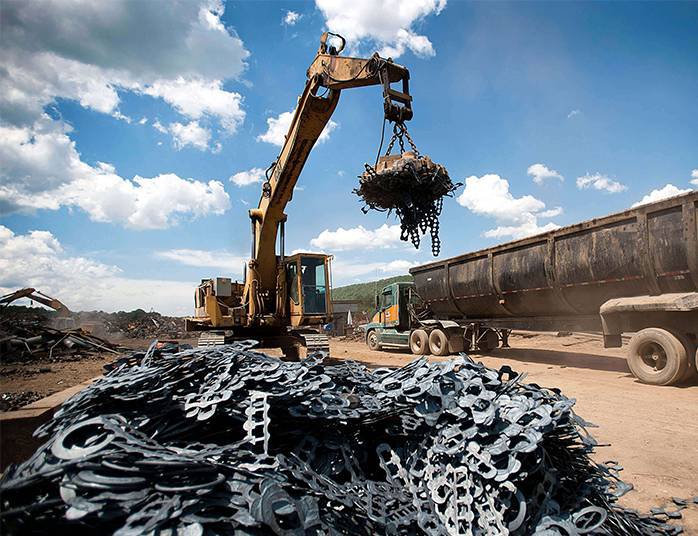

JUN 04, 2025
Scrap metal recycling is profitable, good for the environment, and saves money. With a growing focus on sustainability, recycling scrap metal has become more important than ever. If you’re looking to get started with scrap metal recycling, then you may wonder how it works. Luckily, you’ve come to the right place.
At RCM Recycling—reliable scrap metal buyers—we’re proud to be part of this crucial industry and committed to giving all types of metals a new life. We’ve been offering professional services for years and established ourselves as a trusted scrap metal company. In this blog post, we’ll look at the basic stages of the scrap metal recycling process.
Scrap metal is gathered from a wide variety of sources, including households, construction sites, manufacturing plants, and demolition projects. Items such as old plumbing pipes, car parts, wiring, and aluminum cans are all valuable contributors. Some people bring their scrap to recycling centers directly, while businesses and commercial operations may arrange for regular pickups or drop-offs.
Metal recyclers must separate ferrous metals (like steel and iron) from non-ferrous metals (such as copper, aluminum, and brass). This is done using magnets, as ferrous metals are magnetic. Sorting is important because each type of metal must be processed differently. Clean, sorted metal fetches a higher price and is more efficient to recycle.
Large pieces of scrap metal are cut down into smaller, more manageable pieces. Industrial shredders are commonly used to break down bulky materials like car bodies, appliances, and machinery. The smaller the metal pieces, the easier they are to melt down and purify in the next phase.
Scrap metal is fed into a large furnace, where it's melted at extremely high temperatures. Each type of metal requires a different temperature and melting method. This part of the process is energy-intensive, but it still uses less energy than producing metal from raw ore. For example, recycling aluminum uses about 95% less energy than creating new aluminum from bauxite.
Once the metal is fully melted, it undergoes purification to remove any remaining impurities. Techniques such as electrolysis or the use of chemical solutions help ensure the final product is high-quality and suitable for reuse in manufacturing. After purification, the metal is poured into molds or cast into specific shapes like bars, rods, or sheets.
The recycled metal, now in a usable form, is transported to manufacturers who use it to produce new products. From cars and bridges to electronics and packaging, recycled metal plays a major role in modern industry.
Scrap metal recycling in Thomaston is more than just a practical solution to waste—it's an essential part of a circular economy. The benefits of recycling scrap metals cannot be overstated. By reusing valuable materials, we reduce our dependency on mining, lower greenhouse gas emissions, and extend the life cycle of existing resources. Whether you’re an individual tossing an old appliance or a company managing tons of metal waste, participating in scrap metal recycling is a good move for both your wallet and the planet.
If you have scrap metal taking up space in your home or business premises, get in touch with RCM Recycling. We are top-rated scrap metal buyers that accept both ferrous and non-ferrous metals. If you’re looking for a top-paying scrap metal company, we are one phone call away. Trust the team at RCM Recycling to maximize the value of your scrap metal while contributing to a sustainable environment. Contact us today to learn more about our services and request service.